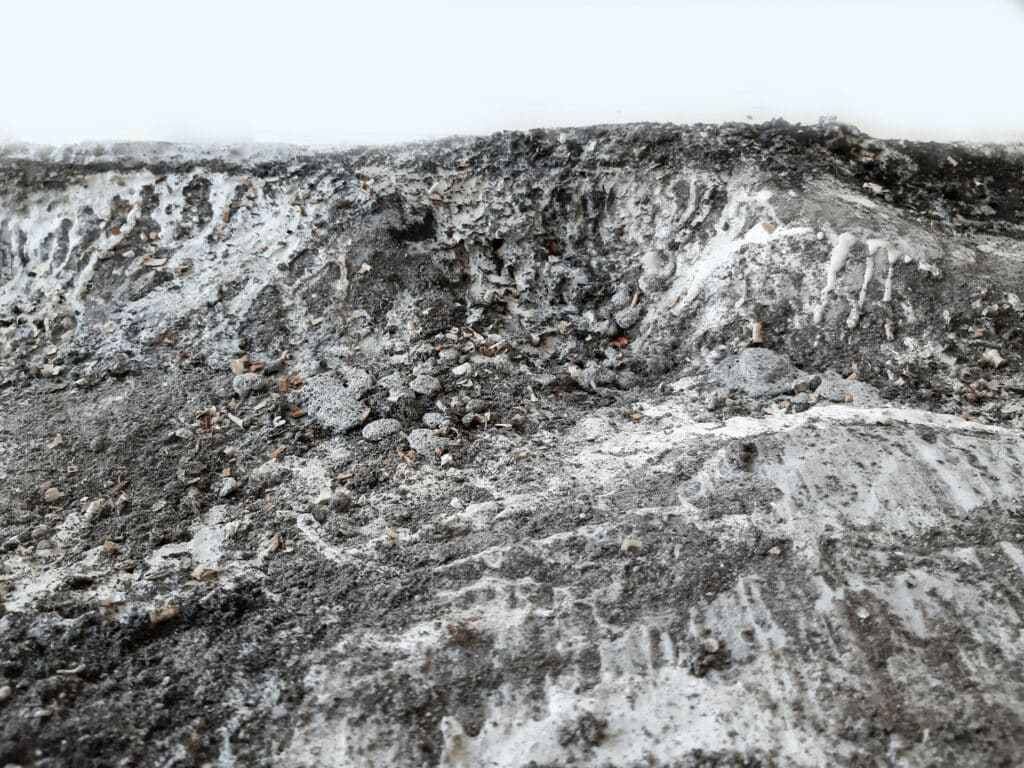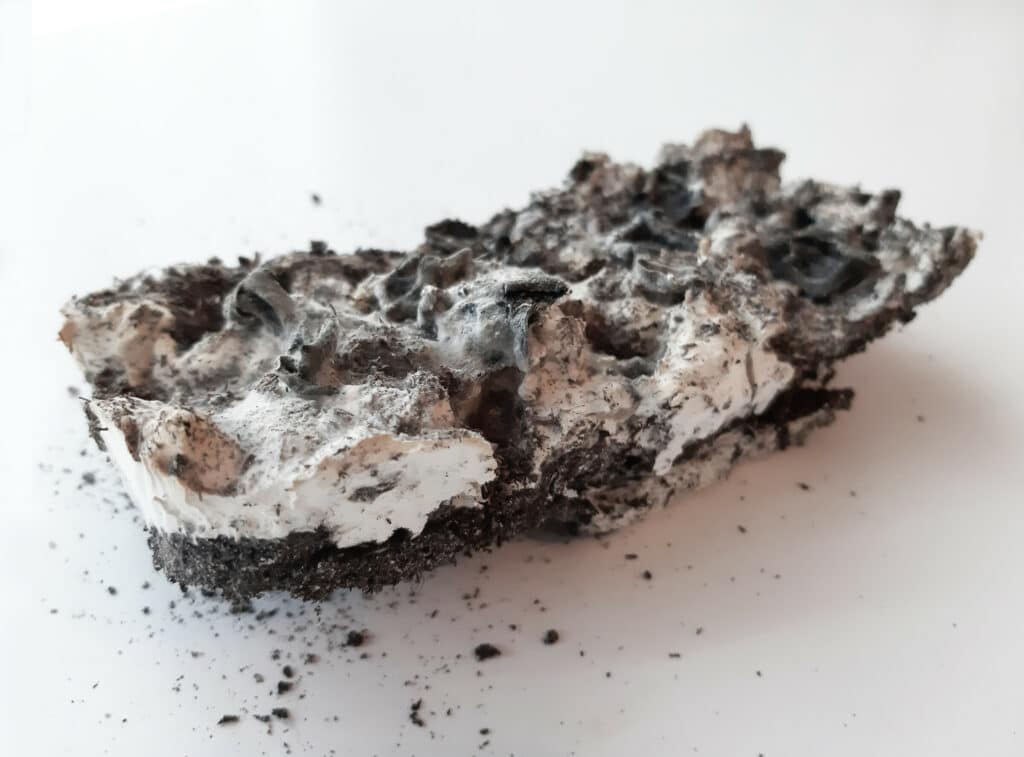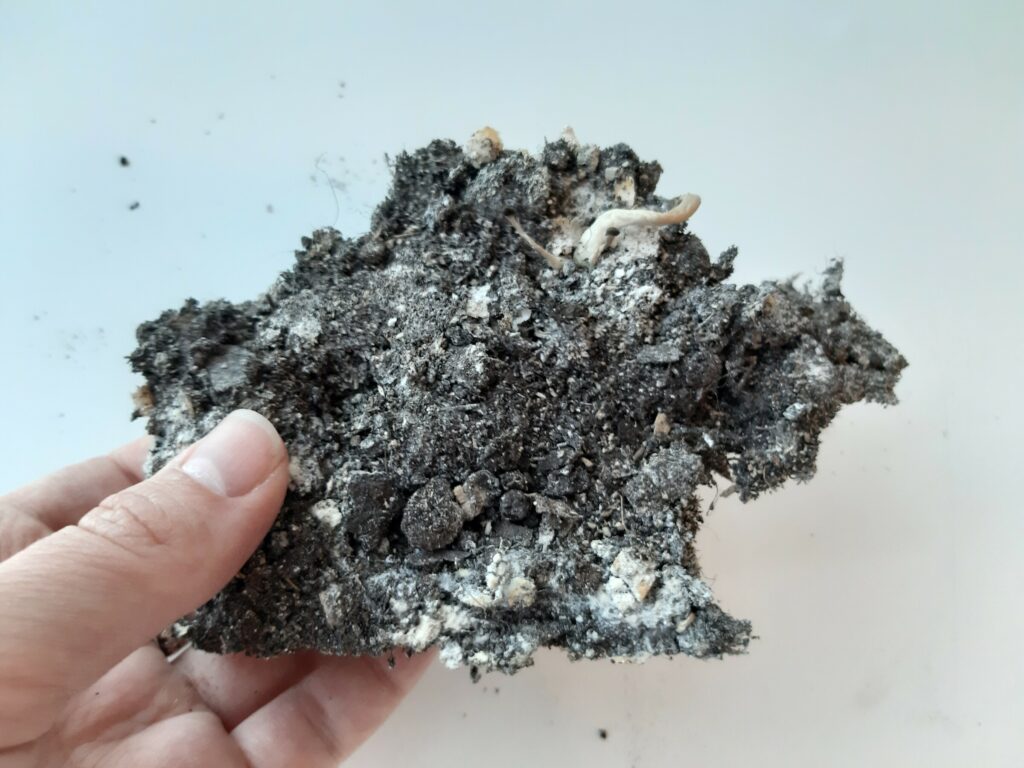Can Fungi Keep a City from Collapsing?

VISION: Cities that are prone to catastrophic sinkholes could reinforce their foundations through a process that uses fungi to prevent collapse.
TEAM: Anna Budnikova
SCHOOL: National Research University, High School of Economics, Moscow
The city of Kazan in Russia has been built on what is known as a karst geological formation. The rocks under the city are made of limestone, marble, and quartzite—all of which are soluble in water. The result is that, as water erodes these underlying rocks, vast sinkholes frequently open up in the streets of Kazan.
Anna Budnikova, a Kazan native and alumna of Biodesign Challenge, wanted to find a biobased solution for her hometown’s problematic holes. Today most cities fill karst cavities with cement to delay erosion, but Budnikova invented a way to heal and regrow the underground landscape by using fungi.
As water erodes the underlying rocks, vast sinkholes frequently open up in the streets of Kazan.
In the lab, Budnikova was able to recreate karst-like conditions and produce new limestone by seeding it with live fungal spores. Her project Mycokarst, which won the BDC 2019 Prize for Outstanding Science, stimulates a natural biocementation process that reinforces the soil without further interventions.
This is much more than using fungi as “cement” to hold the rock together. Instead, the spores expand in soil when wet, precipitating calcite, a component of limestone that then reinforces geological formations that might otherwise collapse. Her research was based on a paper by materials and plant scientists at Rutgers and Binghamton Universities.
“For a long time I was focused on the problem of water resource management, but when I found out that my hometown of Kazan is on a karst platform, I decided to study this phenomenon specifically,” Bunikova said in an interview with BDC. “I see Mycokarst as a new type of urban material that is able to self-repair under extreme conditions.”



